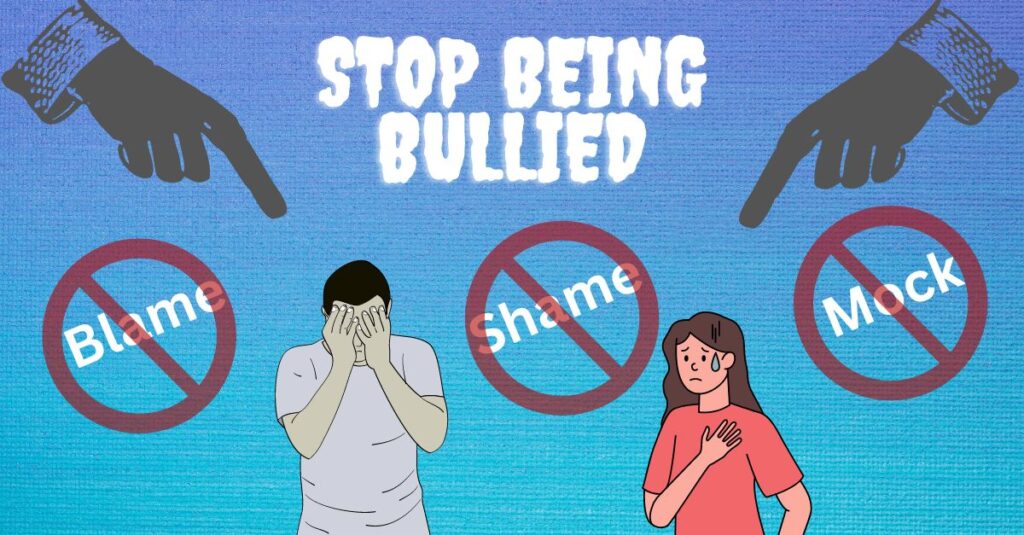How Bullying Tendency Starts and What Can You Do To Stop It?

Bullying is a common occurrence in our society. You may have heard that bullying starts in childhood or adolescence. But, it can occur in any age group. In fact, bullying has even been said to start from birth when parents and relatives put a child down in an attempt to create self-esteem. It’s normal for children to be singled out at times and even called names. But, there are also instances when children also become bullies against other children because they don’t know how to handle their emotions or jealousy regarding their status within the group at school.
Bullying has increased over recent years and there are many signs which can indicate bullying in schools and offices today.
What Is Bullying?
According to the American Psychiatric Association, bullying is defined as repeated aggressive behavior directed toward others who have little-to-no control over the situation. It is also called peer harassment, social aggression, and relational aggression, but generally, the terms are all the same.
Bullies may use physical force, verbal abuse, social exclusion, or threats to harm someone. Bullying is often done in groups and is often motivated by power and control over others.
It’s common for a bully to make fun of someone in front of others, to “stereotype” people who are different from them (for example, labeling them as stupid), and to use his/her influence to make others do what he/she wants them to do. It is not always intentional; in some cases, it can also happen unintentionally.
The Effects Of Bullying
Bullying is defined as unwanted, aggressive behavior directed at someone. It is normally considered a form of bullying that can happen in school and at work but sometimes it could be a more subtle form of aggression like rude gestures, name-calling, etc.
A bully is someone who is more powerful than others and uses this to push others down. These people have a lot of control over their peers, but they don’t get bullied back. Their method of getting revenge is through intimidation and spreading rumors. They gain power by threatening their victims and putting them down. They can also make up lies about their victim to spread rumors around school or at home.
This behavior of bullying can cause many problems for the victim which include physical pain, emotional distress, and fear for their safety at school or at work. It results in long-lasting consequences including poor academic performance, substance abuse, and increased risk level of developing mental disorders later in life.
What Are The Causes Of Bullying?
The behavior of bullying is a common problem that everyone faces at some point or the other in their lives.
Bullying doesn’t happen overnight. It starts subtly, gradually increasing the volume of aggression and the frequency. This can proceed over time into an abusive relationship between you and someone else that you both care about. Bullying tends to be a problem among children who have been identified as having social/emotional difficulties, as well as children who have been victims of some form of abuse or neglect. In most cases, bullying also occurs with people who are in positions of power over others.
Bullying normally begins with a small fight, an incident, or even a comment, and then it escalates into something much bigger than that. Each of us may be guilty of picking on someone once or twice in our lifetime but why not just err on the side of caution?
Some common factors contributing to bullying behavior include:
• Lack of parental supervision
• Poor parenting skills
• Family conflict
• Parental divorce
• Peer pressure
Who Gets Bullied?
There are instances where people are bullied. Whether it is in school or on social media, bullying can happen to anyone at any age.
Bullying is something that happens to the innocent most of the time: children, the elderly, and others who are just new to a school or workplace—people that are typically considered “innocents” by society in general. But it doesn’t stop with children of course. Thousands of adults would be able to look back on their childhoods where they experienced some form of bullying.
Victims of bullying are more likely to experience depression, anxiety, and suicidal thoughts.
How To Prevent Getting Bullied?
So you think you are going to get bullied? I’m sure many of you have faced this situation before. It’s sad, really, but not surprising. And the best thing is that there are ways to protect yourself from getting bullied so that it doesn’t make you feel so bad. Here are some precautions to be taken by bullying victims:
Speak up: Bullies normally pick a person who they think they can have power over. They use social media, texting, and other forms of communication to connect with their victims. They don’t want you to speak out against them. If you do get bullied, talk to an adult about how to handle the situation. If possible, bring your friend or parents with you the next time the bully approaches you.
Understand the situation: Figure out who is your bully and why you are getting bullied. If there is no physical threat, don’t fall into their trap of becoming a victim, and also don’t try to fight them back. Just stay calm and talk confidently in front of your bully or just ignore them and walk away. Make them understand that you are not a coward. Once they figure out that they won’t be able to get you, they’ll soon get bored and will start giving up.
Set the limit: Once you feel targeted, avoid getting emotional. Practice your response and be prepared when your bully approaches you. Don’t let them get the satisfaction of overpowering you. Confront them politely while setting the limits strongly.
Act quick: Don’t wait till the bully gets physical with you. Bullies will generally test your behavior by calling names, teasing you in front of a group, etc. Once you get a feeling of getting bullied, either speak up or seek help from an adult to prevent becoming a victim. The more you wait, the stronger and more aggressive your bully grows.
To Wind Up:
Bullying happens in every school, sport, and workplace. People who bully you may think they are being funny and ‘nice’ but they are aggressive and mean-spirited. The most important thing you need to know is that bullying doesn’t happen by chance – it’s not the result of a random bad day or moment. That’s because bullies have a sick idea in their mind that they can harm you without any consequences – ensure this by understanding why they do it in the first place.
If you’re being bullied right now or if you’ve just been threatened by someone online, don’t panic! There is help available. And, if necessary, there is help from your parents as well. Think about what happened and put measures in place to keep yourself safe and healthy. Put positive people around you who can help lift your spirits too. And remember: even though things may not feel like it at the time—you do have control over the outcome and the choices that you make can have a big impact on how things unfold for the better!




